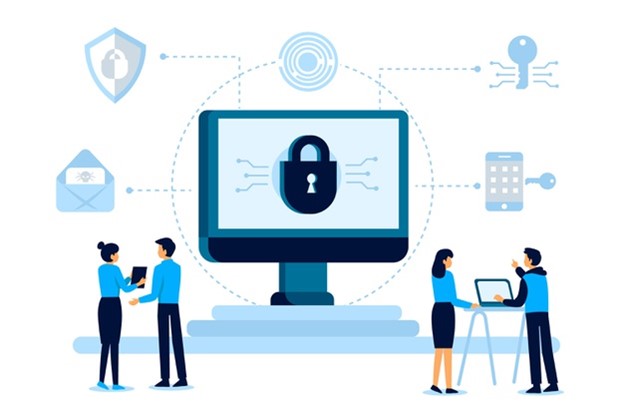Nowadays, network security is more important than ever. That’s not surprising, considering that cyber threats are becoming more sophisticated and cyber attacks are more and more frequent. That said, operating in the online world comes with great risk because even a single successful data breach can set a company back years or even utterly ruin it.
However, cyber threats themselves wouldn’t be as much of a problem if it weren’t for the negligence of companies that aren’t willing to invest in cybersecurity and adequate network protection. In most cases, the CEOs of such companies strongly believe that hackers have better things to do than to target them.

That’s where they’re wrong, though. Hackers will target anything they deem valuable enough; any type of information regarding a company or its customers can be sold to an interested party or used to get other, similarly valuable information. Everyone is a potential target, and everyone is vulnerable. That’s why network security is of the utmost importance these days. With that in mind, here are a few tips to ensure network security.
Educate your employees
Hackers will always target what they believe is the weakest link in your network. In most cases, the weakest link is, indeed, employees who are clueless about potential threats and how to recognize them. The most common example is phishing scams that hackers use to lure employees into clicking a link or opening an email that will create a backdoor into their company’s network for hackers to exploit.
That’s why the first step in improving network security is to educate your employees about certain cyber threats. That way, you minimize the risks of data breaches, and you help employees become more vigilant about what they do that can compromise the entire network. If employees can recognize the scam on time, they can also prevent the attack or alert someone who will sort the issue out.
Implement proper security measures
The foundation of network security is the implementation of proper measures that will prevent cyber attacks and data breaches. Installing security software, such as antivirus, antispyware and so on, is a good way to start.
However, just one piece of software won’t do much. The fact of the matter is that proper network security consists of layers upon layers of security measures. That way, if one measure fails, the other can stop the attack. Therefore, an ideal network security system consists of security software, a reliable firewall, strong company policies and backups, as well as disaster recovery, among other things.
Take a firewall, for example. If you implement advanced firewall hardware, you can prevent some of the most sophisticated cyber attacks and ensure network security through constant monitoring. If you add additional security measures, you can further improve your network security and prevent other types of attacks.
Enforce strong password policies
Passwords are the most common target for hackers. The main reason is that a lot of people use short and weak passwords for any number of accounts ranging from social media to email and so on. Now, these short and weak passwords may be easy to remember, especially if you use the same one for multiple accounts, but that makes a hacker’s job of cracking it a walk in a park.
For the company’s network accounts, such passwords are not an option. That’s why you must enforce strong password policies through your company. A strong password consists of numerals, symbols, upper and lower case letters and is between 12 to 18 characters long.
Only then does it become really difficult to crack them. Moreover, if you change the passwords every three to six months, it becomes almost impossible to crack them. Therefore, protect your network accounts with strong passwords to avoid data breaches that can have serious consequences.
Use Multi-Factor Authentication (MFA)
MFA is an additional layer of security for your network accounts. As mentioned before, a strong password makes it really difficult for hackers to crack them, but it’s not impossible for them to do so. MFA acts as another obstacle before anyone can access a network account.
MFA protocol requires an input of a security token along with the password. This token can be any number of things ranging from a randomly generated security code sent to your mobile phone to a biometric scan, such as a fingerprint, for instance.
Therefore, even if someone was to crack your password or obtain it by some other means, they still won’t be able to gain access to the accounts because of the MFA. Simply put, it’s better to be safe than sorry, especially when it comes to accounts that can expose sensitive company information.
Companies of all sizes, whether it’s just a small business or a large enterprise, are a target of cybercriminals. Any data or information stolen can be sold, and oftentimes some companies won’t hesitate to hire someone to sabotage their competition. That’s why it’s vital to have proper network security so that you can protect your business and its data from cyber attacks, data thefts, and breaches.

